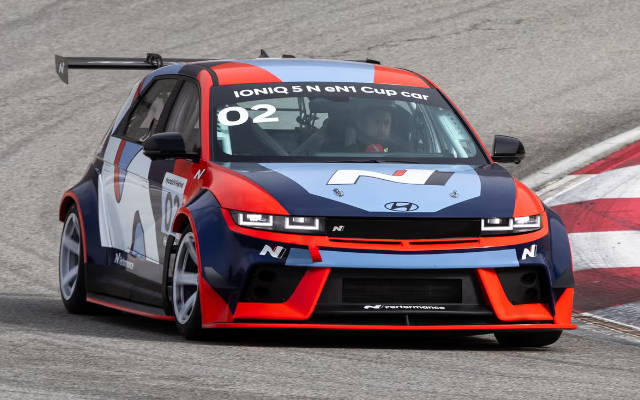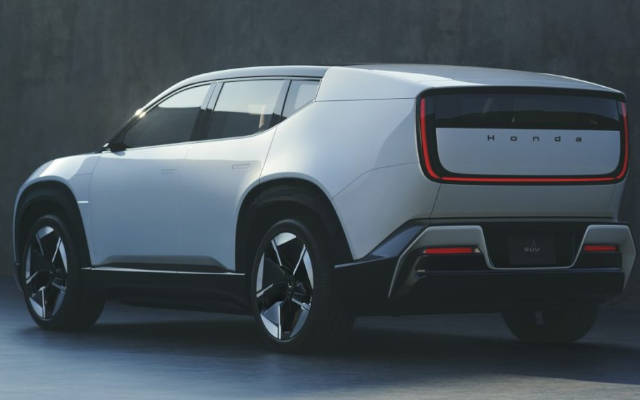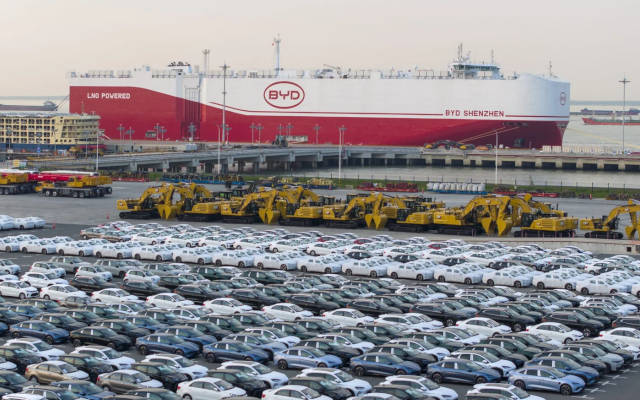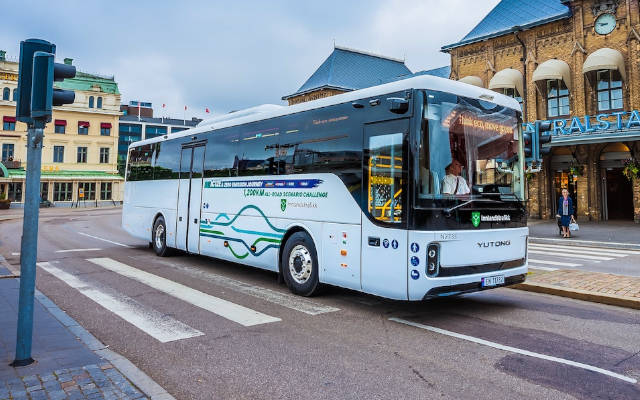 EDITOR'S PICK
EDITOR'S PICK
Nobody Wants Electric Supercars. But Why?
22 Jul 2025 | Synopsis
 Electric supercars are struggling. With high-performance mainstream EVs like Hyundai's Ioniq 5 N offering 0‑60 mph in ~3.4 sec for ~$68K, buyers don't see value in paying 7‑figure sums for marginal gains. Supercar brands like Rimac, Koenigsegg, Pagani, Ferrari, and Lamborghini report flat demand for full-EV hypercars. Enthusiasts miss engine sound, emotion, and unique tactile feel -EVs excel in speed but lack character."
Electric supercars are struggling. With high-performance mainstream EVs like Hyundai's Ioniq 5 N offering 0‑60 mph in ~3.4 sec for ~$68K, buyers don't see value in paying 7‑figure sums for marginal gains. Supercar brands like Rimac, Koenigsegg, Pagani, Ferrari, and Lamborghini report flat demand for full-EV hypercars. Enthusiasts miss engine sound, emotion, and unique tactile feel -EVs excel in speed but lack character."The EVs We've Lost
22 Jul 2025 | Synopsis
 Global automakers - including Honda, Nissan, Mercedes, Ford, Volvo, Maserati, Ferrari, Lamborghini, Porsche and even Apple - have recently canceled or delayed numerous EV programs due to shifting market dynamics like supply chain issues, slowing demand, policy reversals and tariffs. While some see this as a market correction, others view it as strategic adaptation amid volatility.
Global automakers - including Honda, Nissan, Mercedes, Ford, Volvo, Maserati, Ferrari, Lamborghini, Porsche and even Apple - have recently canceled or delayed numerous EV programs due to shifting market dynamics like supply chain issues, slowing demand, policy reversals and tariffs. While some see this as a market correction, others view it as strategic adaptation amid volatility.China's EV Push in Brazil Triggers Labor, Tariff, and Safety Concerns
22 Jul 2025 | Synopsis
 Chinese EV makers like BYD are flooding Brazil with low-cost imports while delaying promised local production. Labor abuses at a BYD factory site and growing concerns about Chinese EV safety in China are fueling backlash. Brazil is weighing tariff hikes to protect jobs and its auto industry. The controversy underscores global scrutiny of China's EV practices as it expands abroad.
Chinese EV makers like BYD are flooding Brazil with low-cost imports while delaying promised local production. Labor abuses at a BYD factory site and growing concerns about Chinese EV safety in China are fueling backlash. Brazil is weighing tariff hikes to protect jobs and its auto industry. The controversy underscores global scrutiny of China's EV practices as it expands abroad.Yutong's IC12E Electric Coach Demonstrates Real-World 510 km Range Across Europe
22 Jul 2025 | Synopsis
 The world's largest electric bus manufacturer set out to demonstrate the practicality of an intercity electric bus capable of carrying 59 passengers as the IC13E roamed across northern Europe.
The world's largest electric bus manufacturer set out to demonstrate the practicality of an intercity electric bus capable of carrying 59 passengers as the IC13E roamed across northern Europe. EV World's SI contributor expands on the details of the 1200+ kilometer drive from Hamburg to Copenhagen and beyond with as much technical and operational data as it could muster, revealing that even with full passenger load it can do the job.
EVs Reach Carbon Break-Even in 2 Years
20 Jul 2025 | Synopsis
 "...report concludes U.S. battery electric vehicles (BEVs) offset their higher manufacturing carbon emissions within just two years of driving, delivering a 41–71% reduction in total lifecycle greenhouse gases compared to internal combustion engine
"...report concludes U.S. battery electric vehicles (BEVs) offset their higher manufacturing carbon emissions within just two years of driving, delivering a 41–71% reduction in total lifecycle greenhouse gases compared to internal combustion engine"With lifecycle emissions tip in their favor after two years, U.S. OEMs can highlight environmental leadership - if upfront costs and infrastructure follow suit."
 EVWorld Exclusive
EVWorld Exclusive
Unlocking Heat's Hidden Potential: How a Nanoscale Discovery Could Transform Everyday Tech
24 Oct 2025 |  A recent nanoscale physics breakthrough reveals heat can transfer across tiny gaps far more efficiently than expected - up to 100 times greater than classical predictions. This could revolutionize cooling and energy systems in electronics, EVs, and smart appliances. While engineering challenges remain, early applications may emerge within 3-5 years, with broader consumer adoption possible in the next decade. The future of heat management may be silent, solid-state, and radically efficient.
A recent nanoscale physics breakthrough reveals heat can transfer across tiny gaps far more efficiently than expected - up to 100 times greater than classical predictions. This could revolutionize cooling and energy systems in electronics, EVs, and smart appliances. While engineering challenges remain, early applications may emerge within 3-5 years, with broader consumer adoption possible in the next decade. The future of heat management may be silent, solid-state, and radically efficient.
Turning the Energy Crunch into a Smart Grid Revolution
24 Oct 2025 |  America's energy crunch is not about supply - it's about coordination. Virtual power plants and vehicle-to-grid systems offer a scalable, software-driven solution to rising demand from AI, EVs, and climate volatility. By turning homes, vehicles, and businesses into active grid assets, and aligning policy with technology, the U.S. can build a smarter, more resilient energy future without building more power plants. The tools exist - now it's time to connect them.
America's energy crunch is not about supply - it's about coordination. Virtual power plants and vehicle-to-grid systems offer a scalable, software-driven solution to rising demand from AI, EVs, and climate volatility. By turning homes, vehicles, and businesses into active grid assets, and aligning policy with technology, the U.S. can build a smarter, more resilient energy future without building more power plants. The tools exist - now it's time to connect them.
Auto Retail in 2025: Bridging the Trust Gap Between Dealers and Buyers
24 Oct 2025 |  The 2025 Urban Science and Harris Poll report reveals a growing disconnect between dealers and buyers. While dealers embrace EVs, AI, and digital tools, many buyers remain cautious - especially about full electrification and online-only retail. Brand loyalty is weakening, and policy clarity is key to adoption. The future of auto retail depends on bridging trust, flexibility, and infrastructure gaps.
The 2025 Urban Science and Harris Poll report reveals a growing disconnect between dealers and buyers. While dealers embrace EVs, AI, and digital tools, many buyers remain cautious - especially about full electrification and online-only retail. Brand loyalty is weakening, and policy clarity is key to adoption. The future of auto retail depends on bridging trust, flexibility, and infrastructure gaps.
Electric Icons in the Making: Audi Concept C vs. Chevrolet Corvette EV
23 Oct 2025 |  Audi's Concept C previews a refined electric GT built on the mature PPE platform, likely arriving by 2026. Chevrolet's Corvette EV promises supercar performance but faces packaging and thermal challenges. Audi is closer to production; Corvette remains in early development. Both reflect divergent strategies in electrifying legacy sports cars, with Audi emphasizing platform maturity and Chevrolet pursuing brand continuity through engineering innovation.
Audi's Concept C previews a refined electric GT built on the mature PPE platform, likely arriving by 2026. Chevrolet's Corvette EV promises supercar performance but faces packaging and thermal challenges. Audi is closer to production; Corvette remains in early development. Both reflect divergent strategies in electrifying legacy sports cars, with Audi emphasizing platform maturity and Chevrolet pursuing brand continuity through engineering innovation.
Electrification Is Not an Oversimplification
23 Oct 2025 |  Despite critiques that the quest for global electrification is "simplistic", the transition is strategic and necessary. Grid upgrades, battery innovation, and tailored policies make electrification viable. Sodium-ion batteries and recycling reduce material risk. Compared to fossil fuels, electrification offers cleaner, safer, and more resilient systems. Complexity demands better design - not delay.
Despite critiques that the quest for global electrification is "simplistic", the transition is strategic and necessary. Grid upgrades, battery innovation, and tailored policies make electrification viable. Sodium-ion batteries and recycling reduce material risk. Compared to fossil fuels, electrification offers cleaner, safer, and more resilient systems. Complexity demands better design - not delay.
 25 Oct 2025 10:32:44 UTC |
RECENT PODCASTS
What Battery Chemistry Wins - Ontario Nuclear Investment - Battery Storage Boom
SEARCH RSSTREAM
 40 New Postings In Past 24 Hours
40 New Postings In Past 24 Hours
Category:mobility
Region:NoAmerica
Date:24 Oct 2025
Category:review
Region:NoAmerica
Date:24 Oct 2025
Category:mobility
Region:NoAmerica
Date:24 Oct 2025
Category:energy
Region:NoAmerica
Date:24 Oct 2025
Category:mobility
Region:AsiaPacific
Date:24 Oct 2025
Category:mobility
Region:NoAmerica
Date:24 Oct 2025
Category:energy
Region:AsiaPacific
Date:24 Oct 2025
Category:policy
Region:NoAmerica
Date:24 Oct 2025
Category:energy
Region:NoAmerica
Date:24 Oct 2025
Category:energy
Region:Global
Date:24 Oct 2025
Category:mobility
Region:NoAmerica
Date:24 Oct 2025
Category:mobility
Region:NoAmerica
Date:24 Oct 2025
Category:mobility
Region:NoAmerica
Date:24 Oct 2025
Category:mobility
Region:NoAmerica
Date:24 Oct 2025
Category:mobility
Region:NoAmerica
Date:24 Oct 2025
Category:finance
Region:NoAmerica
Date:24 Oct 2025
Category:mobility
Region:NoAmerica
Date:24 Oct 2025
Category:finance
Region:NoAmerica
Date:24 Oct 2025
Category:finance
Region:NoAmerica
Date:24 Oct 2025
Category:mobility
Region:NoAmerica
Date:24 Oct 2025